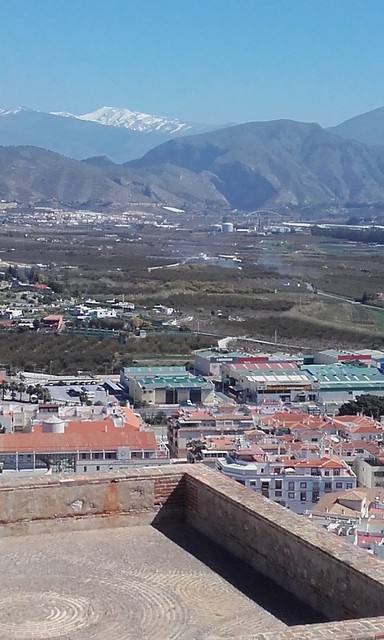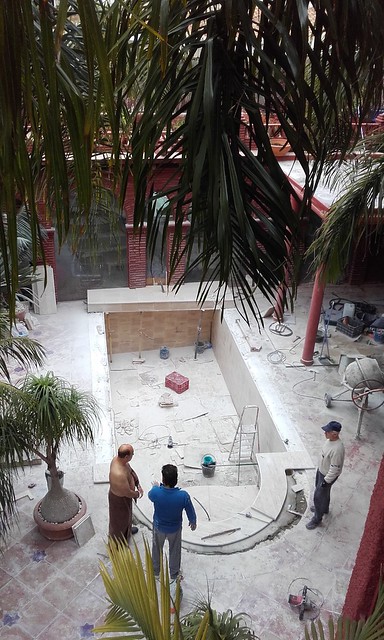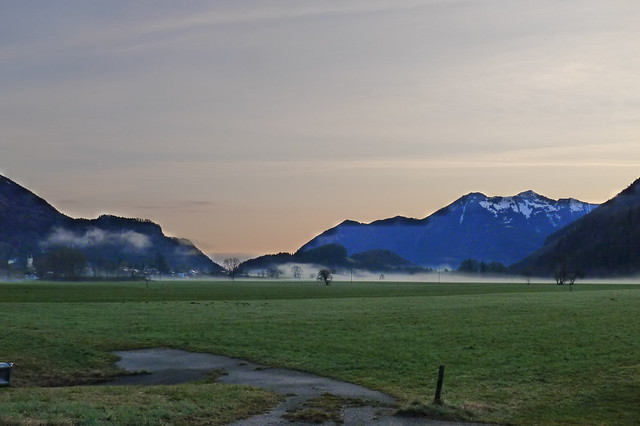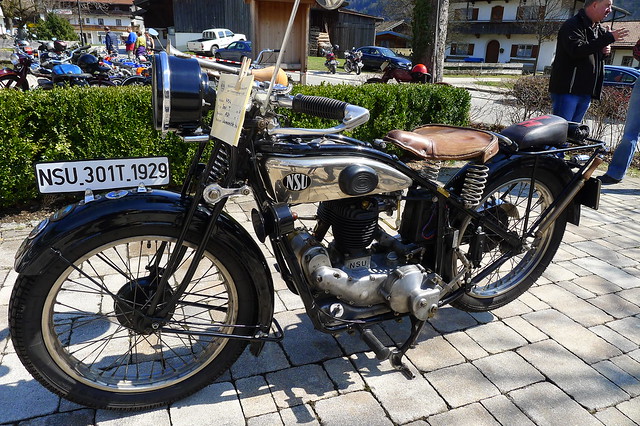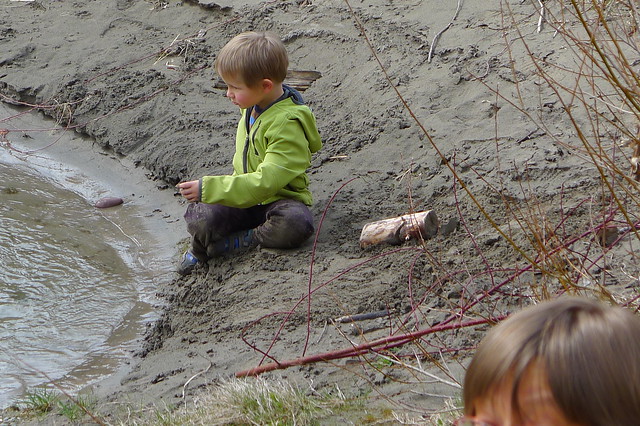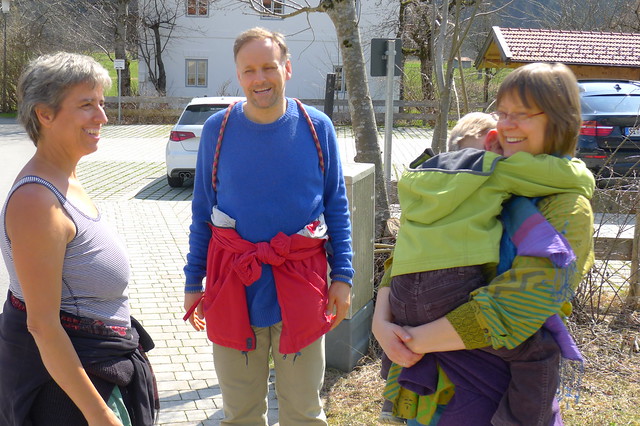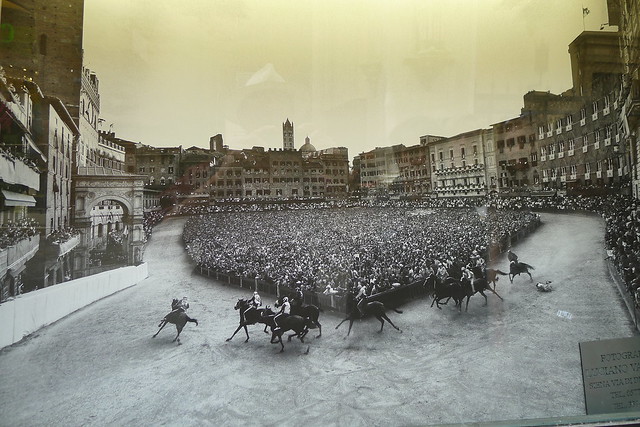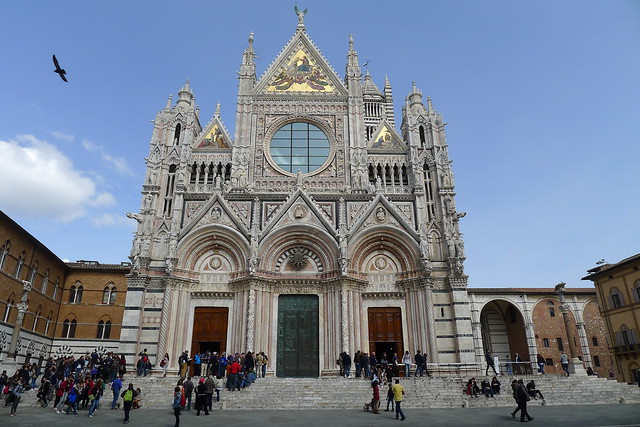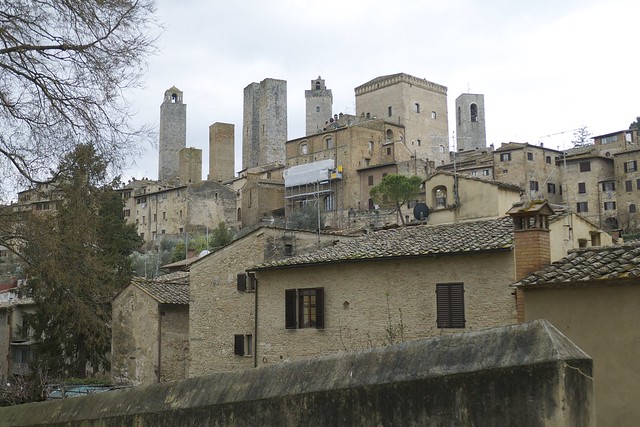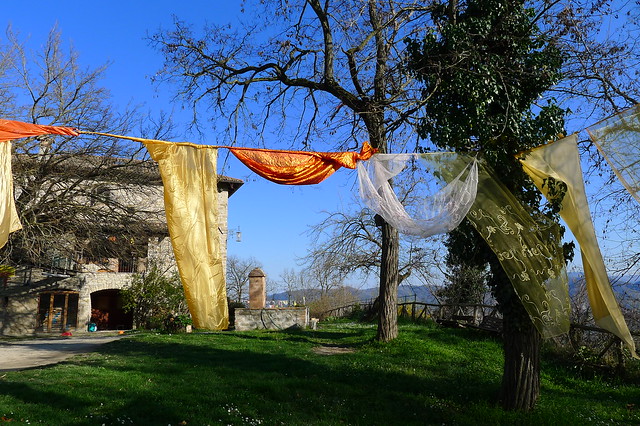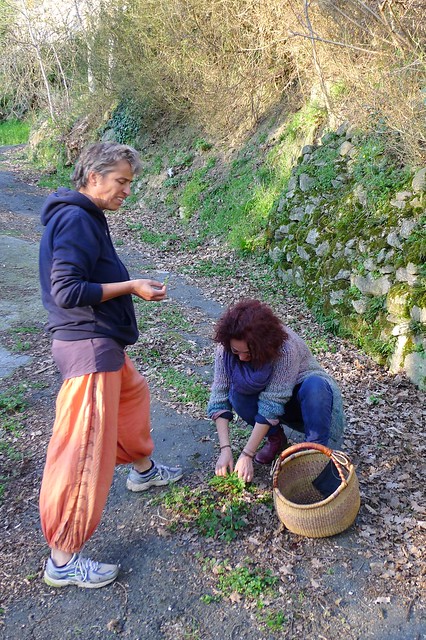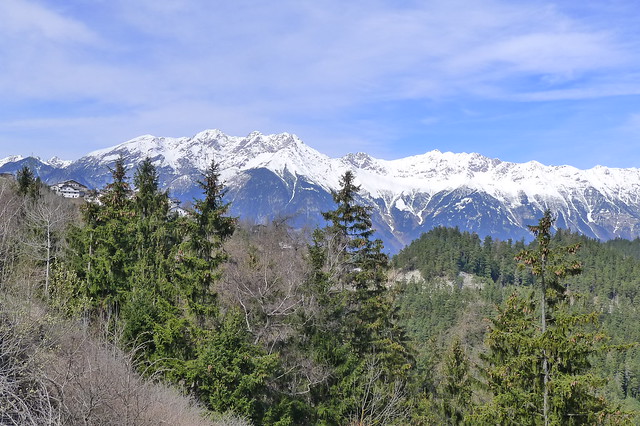Dr. Nur
For a change it’s me that flies off, leaving Ruth behind in our lovely Emma.
It’s a strange start to my journey to Motril: 2.30am National Express coach Cardiff to Bristol airport, 6.05am flight to Malaga, coach Malaga to Motril, arriving at 1.30pm. I go straight to Nur’s surgery in time to see the last of his morning patients ushered in.
We greet each other with huge hugs and he drives us home to Las Almendras and after a light lunch I crash until 6.30pm on a very comfy bed with a view down the coast from the first floor of his extraordinary villa. I wake to a full house: Nur’s youngest sister has moved in with her 14 and 10 year old daughters, another sister, with husband Antonio, whose birthday has just been, and their son, about to turn 16. We are ten around the dinner table. I am placed next to a poet/singer friend of the family who inexplicably has three mobiles in front of him and hardly has time or free hands to eat – in the gaps when he does, he spontaneously breaks into song, inspired by the topics of conversation going around the table. Numerous tit-bits, a sort of Syrian tapas, arrive in a steady stream. Nur, like a benificent sultan serves, often treating me to the first taste as the newest guest. The main dish is a kind of middle-eastern shepherd’s pie – though more interestingly spiced than its British namesake.
It’s way past midnight when we leave the table and I’m asked to keep my bedroom door ajar, so that the ‘poet’ can use the en-suite bathroom. I find it hard to get off to sleep as not only am I being dive-bombed by a silent mosquito or three but the party downstairs seems to continue well into the night. At around 4.30, I go down to see if they can reduce the noise a tad, to discover the TV on and no-one there! I find the remote and am turning it down when the poet shuffles in from the loo and settles back down on a bed-settee. I finally sleep soundly and wake to find everyone getting ready for a combined Birthday shopping trip to Malaga. I decide to hitch down the hill to explore Salobreña with its moorish castle. By 10 o’clock I’m sat on a bench in front of a very modern looking town hall, writing post cards to Eva et al – it’s already a pleasant 18 degrees and I’m sporting a new straw hat to avoid a sun-burnt pate. I make enquiries, when buying stamps, about somewhere good to eat and am directed to ‘la Bodega’ where at 1pm they start serving a menu de dia for 10 Euros. I drop into a barber’s that I’ve also been recommended and as he’s fully booked for that morning he makes me an appointment for 10 o’clock on Monday morning.
It’s a steep climb to the castle, but the panoramas are well worth it. From the long beaches stretching as far as the eye can see to the snow-clad peaks of the Sierra Nevada. My mobile doesn’t really do them justice, but you get the idea…
By the time I get down from the castle and think about birthday presents for Antonio and his son Abraham, all the shops are closed. Thankfully I find some Medjoule dates and a fresh coconut in Lidl and head back up the hill to Dr. Nur’s after a very tasty Gazpacho, grilled fish and fresh salad.
I seem to have forgotten any Spanish I learnt last year and what comes out of my mouth is Italian with softened ‘c’s and ‘d’s, as I get to know Mario, Manolo and Chamaco who are re-tiling Nur’s pool.
The evening is taken up with celebratory eating and drinking and at one point Abraham is blindfolded and we’re all handed wigs, clown noses and ties and a lit birthday cake is revealed to a round of the international birthday song, whereupon Abraham has to open and model all his presents.
The next day, the house is very much quieter as Nur heads off to his surgery in a dapper white suit and matching shoes. After finishing Ian McEwan’s Sweet Tooth (I’m always fascinated, in his novels, by the peppering of subtle references to characters and situations which have their root in Suffolk and Woolverstone Hall – the school we both went to – this time the inclusion of our school motto Nisi Dominus Varnum), I hitch a lift back down to Salobreña where I discover the town’s only charity shop. I ask if they are raising money for refugees and one of the volunteers, a delightful scottish lady called Irene, tells me of the plight of many locals – not involved in tourism – whose children can’t find work and subsequently stay home or move into their grandparents’ houses, who themselves barely eke out an existence on their tiny pensions.
I buy a perfectly good pair of trousers and couple of english novels for 2 Euros. As I’m leaving, I realise how little this actually is and go back in and give one of the other ladies 5 Euros to put in the ‘box’. When I return the next day to buy a kitsch figurine for Nur (plus 2 100% cotton shirts and a silk scarf) Irene tells me that the other workers had been confused by my donation, asking whether I’d actually bought something else. It then dawned on me that I would need something larger to accommodate my purchases for my return home, as I’d packed everything in a tiny rucksack for the outward journey. As luck would have it, there was a sturdy little case which I just prayed would conform to Easyjet’s cabin bag measurements.
On my way back, I pass a photographer’s where I download and print a selection of pics from my phone. Once at Nur’s, I prop these against the figurine on the dining room table, which he’s delighted with when we sit down to lunch.
After his siesta we return to his surgery in Motril where he begins a thorough examination – just as he’d done almost exactly a year ago on our first meeting – blood, urine, heart, kidneys, lungs, echograph and x-ray: you name it, he has the equipment and two hours later he gives his considered prognosis. If the new medication he prescribes doesn’t radically change my bladder retention and control within the next few months, he recommends the total removal of my prostate. I hardly need to remind myself but this is why I came back to see this man. He doesn’t just focus on the prostate, as have the numerous urologists I’ve consulted over the past ten years, he looks at and perhaps more importantly, sees the whole person.
The homeward journey doesn’t run as smoothly as the outward one. I’m told there is no more room in the overhead lockers for my hand luggage and it’s put in the hold. To my horror it arrives on the carousel in Bristol, OPEN! I wait for the coach back to Cardiff but unfortunately nod off and miss it. When I come to, I root around in my suitcase for my new medication only to find it missing. I report this to the Easyjet desk and am asked to wait for the rep and for the police to appear. I very nearly miss the next coach to Cardiff but creep into Emma at 5.30 in the morning, cuddle up to a befuddled Ruth and crash…
For more photos of this chapter, click here
Posted in Uncategorizedwith comments disabled.
Returning Home
It is as if life in the UK is impatient for us. First, while still in Sicily, we receive a phone call from the police asking whether my car, a Rover Metro, may have been abandoned as it’s been in the same place for months. I assure them it’s not and that I will be back home soon to remove it. Next, on our journey north, we receive a call telling us of the death of Sarah a close family friend of Frank’s and inviting us to the funeral (remember the lovely gentleman in the wheelchair at our wedding? Remember his wife? That was Sarah). So we travel a lot faster than originally intended, skipping about a week of other planned stops. Then, on the ferry, we receive a call from Frank’s tenant that the shed in the front garden had been broken into but the bikes hadn’t been stolen due to them being quite securely locked. However, we fear that the thieves might come back at night with suitable tools to cut the heavy chains, so we decide to drive through the night to get to Cardiff as soon as possible, and we manage to remove the bikes at 2.30am and save them from being stolen.
After a few hours sleep we get up early to address the question of my ‘abandoned’ car. It seems the battery is completely dead, so we ring the AA. I think AA stands for Amazing Angels, because the guy who comes gets the car going. The ignition lock was broken and had sapped the energy out of the battery. So nothing more than a flat battery and little AWA (the name of our Rover) is purring along nicely. We do have a slightly unusual system of starting the car though, now that the ignition lock has gone. Ah, well, it’s an old car and replacing the ignition would cost more than she is worth, and the immobilizer still works, so it’s no more vulnerable to being stolen than before. The Amazing Angel assures me that no-one would want to steal my car. I take this as a reassuring statement, rather than a derogatory remark on my stalwart little machine.
Posted in Uncategorizedwith comments disabled.
Germany
Our next stop is only a hour’s drive from Anthony’s place, and we’re still in the deepest and most conservative Bavaria. The landscape is utterly beautiful, picture postcard Germany, with hills and forests and cows and beautiful traditional houses. We visit one of my aunts who I haven’t seen in a number of years. She wants us to park right in front of her house, but we chicken out when we see the size of the streets and park on the edge of the village instead. My aunt Kathrin awaits us with an enormous, delicious brunch and while we tuck in, we catch up on our news. I’ve always felt a nice connection to her, liked her humour and her zest for life. The locals think of her as the mad woman who, armed with flippers, does an hour’s back stroke crossing the local lake and back, every day for most of the year. When it really gets too cold, she goes to the swimming pool instead where she has special dispensation to bring her flippers with her. Kathrin lives on her own and is happy with her own company. She has no internet connection, she doesn’t like what she sees it doing to other people. She prefers to knit, read a book or listen to the radio in the evenings, rather than sitting in front of a computer or television. I can relate to that too – we deliberately don’t have a dongle and need to find an internet point for our computer work. This means that we read or play cards in the evenings, or I practice my violin. Computers really can take over your life, and it’s nice to be able to limit the time spent in front of the screen.
Our next stop is quite a bit further up, just north of Frankfurt, where we stop for a couple of nights to visit my uncle Friedrich. Those who came to our wedding might remember him – a beautiful, smiling octagenarian who plays the viola. At the wedding, he helped in the kitchen, helped with decorating the space and after the wedding stayed on for a couple of days to help me with putting shelves into the van.
I pluck up courage to suggest playing duets with Friedrich. I am not at all confident on the violin yet, and have to stop myself from thinking about it too much and getting all nervous in advance. When it comes to it, it’s really lovely. We find some early baroque duets that are easy enough technically and at the same time fascinatingly interesting in their harmonies. We spend the best part of the day lost in the sounds we create together. Friedrich is so encouraging and, buoyed by the beauty of his sound and by his supportive comments, I play better than I have ever played before. In just one long session, my skill and my confidence take a huge leap forward.
At dinner, we stroll into the old town centre of Oberursel for a traditional meal in an old pub. Three of us have the seasonal traditional dish ‘Grüne Sosse’ (a dish that includes the use of 7 particular herbs) while Frank goes for a meaty option, a steak covered with goats chees, tomato, bacon and mushrooms, accompanied by a baked potato.
The next day, we wake up early and take advantage of empty motorways to drive up to Köln, arriving at my sister’s place just in time for breakfast. It is always nice being there, catching up with news, connecting with the three lovely children and spending a bit of time in the house I grew up in.
In Köln, just as everywhere else in Germany, conversation turns within 20 minutes to the plight of the refugees. I know of a German doctor who decideded to go to Idomeni off his own back to help where help is needed, and I receive his daily posts on Facebook. The situation there is dire, people in utter desolation, many people starving, respiratory illnesses and diarrhoea are widespread. Breastfeeding mothers cannot get enough food for themselves to produce breast milk, severely sick people cannot be transported to hospitals due to an 80 000 Euro fine being imposed on anyone transporting a refugee without permission from the authorities. Doctors like Ijos work long hours sometimes out of the back of a van, with insufficient medical equipment and medicines. Often they cannot help but only give empathy.
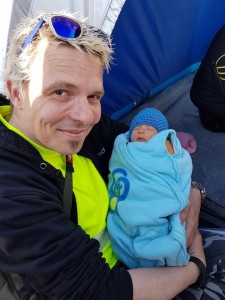
This is Adam, he was born by the border fence. One day, our children will ask “why was he born by the border fence?”…. what will be our answer??? This is 2016 in Europe!
Children get born and old people sit in the damp under tarpaulins, waiting for death. It is unimaginable that this should be happening in Europe. We sit in front of full tables, we have food whenever we want, we have peace and shelter, and we can go and see a doctor when we feel ill. Why can we not share this with those who so desperately need it?
It’s a mass media hysteria that governs the news – an ‘avalanche’ of refugees is such an exaggeration! Maybe people in the Lebanon could say so, as they now have 25% refugees but for any European country it’s a tiny percentage. Some months ago, Germany received 12 000 refugees just in one weekend, so why are there now 12 000 refugees stuck and slowly dying on the Macedonian border, most of them women and children?
Another part of the hysteria concerns the idea that muslim radicals find their way into Europe via the route of the refugees. In fact, there have been many more terrorist attacks on muslims than on christians, and even with all the horrible attacks that have happened in Europe in recent months, it is still far more likely to die crossing the road than be the victim of an attack. To bar people from entering europe as part of the ‘war on terrorism’ is just a false pretence. I wish governments would put their energy into adressing the things that really threaten our lives, like the plastic pollution of our oceans, for example, instead of bombing countries and then refusing their refugees. Remember, the refugees in Greece now are mostly women and children. Why do we feel threatened by women and children??? Why have we left Greece alone with this, already on its knees due to its own economical problems, and what on earth is this shady deal with Turkey going to do with the plight of all these people on the move? After the second world war, there were many more people on the move in Europe than now. If Europe was able to deal with it when it was ravaged by war, how much easier must it be now that we are so much better off?
How can we continue to enjoy our wealth, health and freedom, knowing that we actively deny this joy to others? What price do we pay in our psyche if we don’t open our countries to take these people in?
I feel helpless and powerless in the face of this injustice – how much worse must this feeling be for the people at the receiving end?
If anyone feels moved to support Ijos’s work with a donation, you can send them to an account in Germany:
IBAN DE 62258619900088557600, BIC: GENODEF1CLZ, Account name Ottavio, Reference: Spende Flüchtlingshilfe Joost
If it is easier for you to donate to an English account, below are details for an account I am going to use exclusively for this purpose and I will get the money to Ijos asap:
Ruth Rozelaar, Lloyds bank 30-98-69, Account number 25969768, reference IDOMENI
All funds go 100% towards supporting the refugees at Idomeni. Your money will buy food and medicines in Greece for the refugees. Kill two birds with one stone – help the refugees and the greek economy!
Here is a link to a recent post by Ijos. He writes his posts in German but often someone translates them into English (this one has an English translation below the German text), and there are plenty of photos too that will give you an impression of the situation there.
After a couple of days in the arms of my sister’s family, Frank and I prepare for the last leg of our journey home – we print various tickets, buy a new gas bottle, tuck everything tight inside Emma and we’re off into the sunset. The reality of returning to the UK feels really close now and a chapter of travel is coming to an end…
Posted in Uncategorizedwith 2 comments.
Anthony
Anthony and I haven’t been in touch for a number of years – about five it must be, because Philip, their delightful four year old son, was still in utero when Anthony came and visited me in England the last time, together with his two older children.
Much has changed for Anthony in the meantime – the last time we saw each other, he was just at the start of a new relationship and not sure at all where his life would turn towards. Now, he and Heike, his lovely wife, live in a typical Southern German house in a typical southern German village, creating a home for their large patchwork family with 7 children, ranging from age 4 to 27. Not all of them live in the house anymore, but there is a strong sense that it is a home for everyone.
The front garden houses at least a dozen workable bikes, plus some in various states of repair. I wonder why they might need so many bikes? As the day progresses, the reason becomes clear: Their house is also a welcome place for refugees. Apart from having ‘adopted’ a young Eritrean called Joseph and helping him to find his feet in a new culture, Anthony receives a constant stream of refugees all through the day, helping them with all sorts of things, ranging from lending a bike and buying SIM cards, to helping them understand official documents, making phone calls for housing and work, listening to their stories and their needs. The South of Germany is very conservative politically speaking, and in his village he’s probably more or less the only one who would welcome strangers, let alone help them.
Probably 30 refugees pass by on that day. When I remark on the volume of people passing through his house, he says that today was a quiet day, they only came with the most urgent requests because they tried to respect the fact that it was a holiday and not bother him. The mind boggles as to what a normal day looks like!
According to Anthony, the real hardship begins when the refugees have been granted asylum and have permission to work or study, because at that point, the financial support stops and they need to leave any shelter they’ve been offered by the state. Many have not learnt German by then and have very little prospect of finding work or a place to live.
Why don’t they use their waiting time to learn German, I wonder? That’s what I would do if I knew I would have to live in a country; I’d try and learn the language ultra-quick. Anthony asks me to remember that many of them come from regions that have been at war for a long time, for example Afghanistan, so they often have not had much schooling at all. They have not learnt how to learn, how to educate themselves. Add to that the traumatic experiences they have had, which cloud their daily lives, making many of them too depressed to have any motivation at all. The most effective way to help them come out of this situation is to integrate them, he says. Having recently inherited some money, Anthony has bought a house in Augsburg, a student city, where he wants to rent out several flats to groups of young people, part Germans and part refugees, in the hope that this will help the refugees’ transition into society.
It is a glorious sunny afternoon, so we all take a walk to the village where there’s a vintage ralley which puts Frank into 7th heaven.
On our way back, we pass by the river where Philip finds the perfect muddy spot to play in, getting completely soaked in the process.
When we come back home, we all go into the sauna that Anthony and Heike have recently installed in their house, and I’m in 7th heaven too. What a lovely day, and how nice to see Anthony happy and settled in a supportive and loving relationship.
For more photos, click here
Posted in Uncategorizedwith comments disabled.
Italy-Austria-Germany
We wend our way northwards through Tuscany, one night and morning in Montalcino (very touristic, didn’t really grab us) and one night in Siena, which is also touristic but very beautiful too. The stories of the Palio, the mad bare-back horse race they hold each year in the main square, are very evocative.
There is a very long escalator from the station all the way up to the town centre, but even then nearly all roads go either steeply up or down. I try to imagine the city centre’s layout as we stroll through the narrow streets and alleyways, but it is difficult to keep one’s bearings as the roads bend in gentle curves this way and that. The main square is shaped like a big shell and the Duomo, just 100 mtrs from the square, is black and white striped and with impressive ornamentation. There is a queue to get in, so we skip that one and carry on getting lost in the ups and downs of the roads.
Our next stop is San Giminiano where Frank goes on a hunt for the tower which was used in a film called “Queen of Hearts”, where Frank played the part of a wedding photographer. The film opens with a scene where a young couple gets chased through town by the jilted groom who had been arranged by the parents but dumped by the bride in favour of her true love. They run up a tower and, no other escape route available, they jump off the tower. Luckily for them, that very minute, a hay cart passes by underneath and they manage to survive their fall, elope to the UK and run an Italian restaurant for the rest of their lives. Anyway, back to the tower. Frank doesn’t know which one it was and is spoilt for choice in San Giminiano. An icy cold wind is blowing through the roads as we aimlessly amble about town, so eventually I abandon Frank and his search and return to a hot stove and my violin practice in Emma.
From San Giminiano, we head up to visit Laura at Pimpinella who we met in November last year, picking up some very nice fresh fish and sepia along the way in anticipation of another BBQ on the lovely slab of volcanic stone from Sicily.
We get there late and although no-one is at home, it still has a welcoming feeling – the tibetan silk flags are flapping, fairy lights surround the house and there is a star-studded sky, with a full moon rising beautifully over Monte Sole. It is lovely to arrive quietly, absorbing the calm of the place and coming to rest with each other after a long day’s drive.
The next morning I jump out of bed early and take my violin outside to practice in the warm spring sun. Before too long, Laura, her son Angelo and Louisa, the feisty Neapolitan cook, arrive and together, we prepare an enourmous feast of a BBQ with fish and sepia, various salads and roasted Radicchio. The following day, more people arrive: Laura’s daughter Gaia and her boyfriend Nicolai, Jack who is repairing one of the buildings, and Matteo, an agronomy graduate with an interest in permaculture who has recently arrived at Pimpinella and is going to work in the garden, possibly also developing his own projects in some of the fields that currently lie fallow.
We spend a couple of days at Pimpinella’s, making use of Laura’s fantastic knowledge of medicinal plants to do a kidney and bladder cleanse, as well as using her internet and washing machine to catch up with the various back-logs.
Laura takes us on a stroll to two neighbouring medieval villages. We walk along ancient roads and climb through the brambles, picking medicinal herbs in the undergrowth and having deep conversations about life and love. Some of the herbs are extremely bitter raw (as you can see from my face on the photo!), but in the evening Laura makes a delicious cooked dish of all the findings of our walk.
The following day, we all depart in different directions: Since our last visit, Laura has bought a campervan who she calls Freedom, and while we travel up north, she sets off towards Assisi with her twelve year old son Angelo for an Easter holiday.
Fast-forward through Austria where we don’t really stop off other than pausing to cook some lunch and load up some firewood and admire the mountains, and by 7pm, we cross the border into Germany to visit Anthony, an old friend of mine who lives in the Achental.
*******
Here are more photos of the Tuscan towns we went to
Here are more photos of our days at Pimpinella
Posted in Uncategorizedwith comments disabled.
